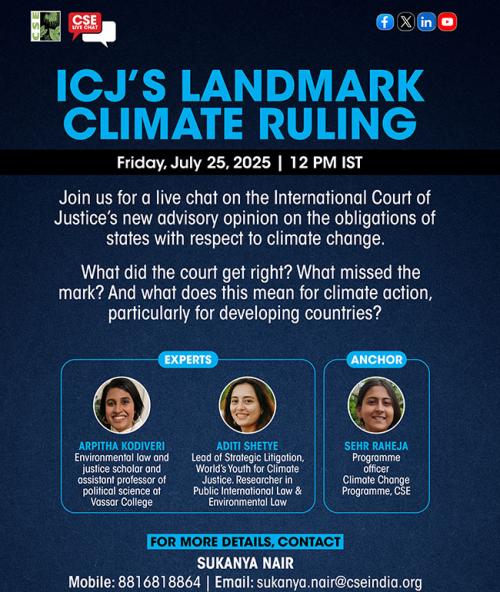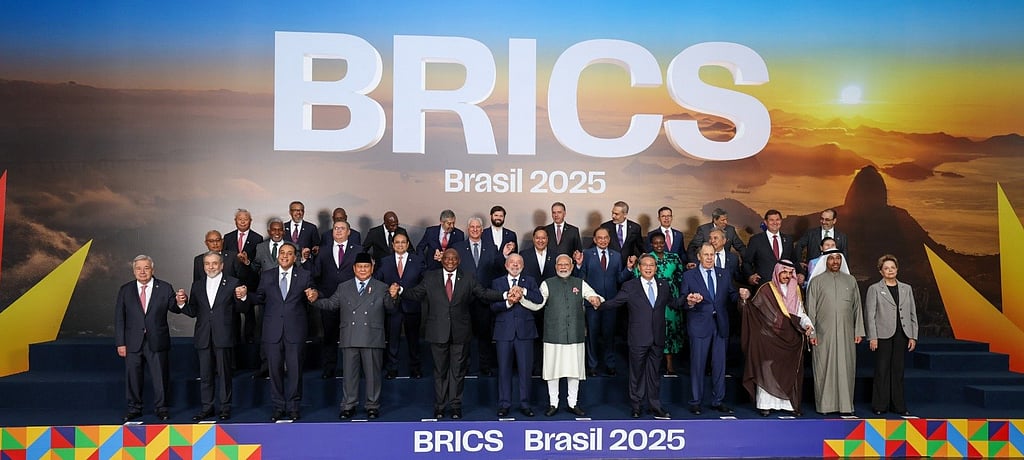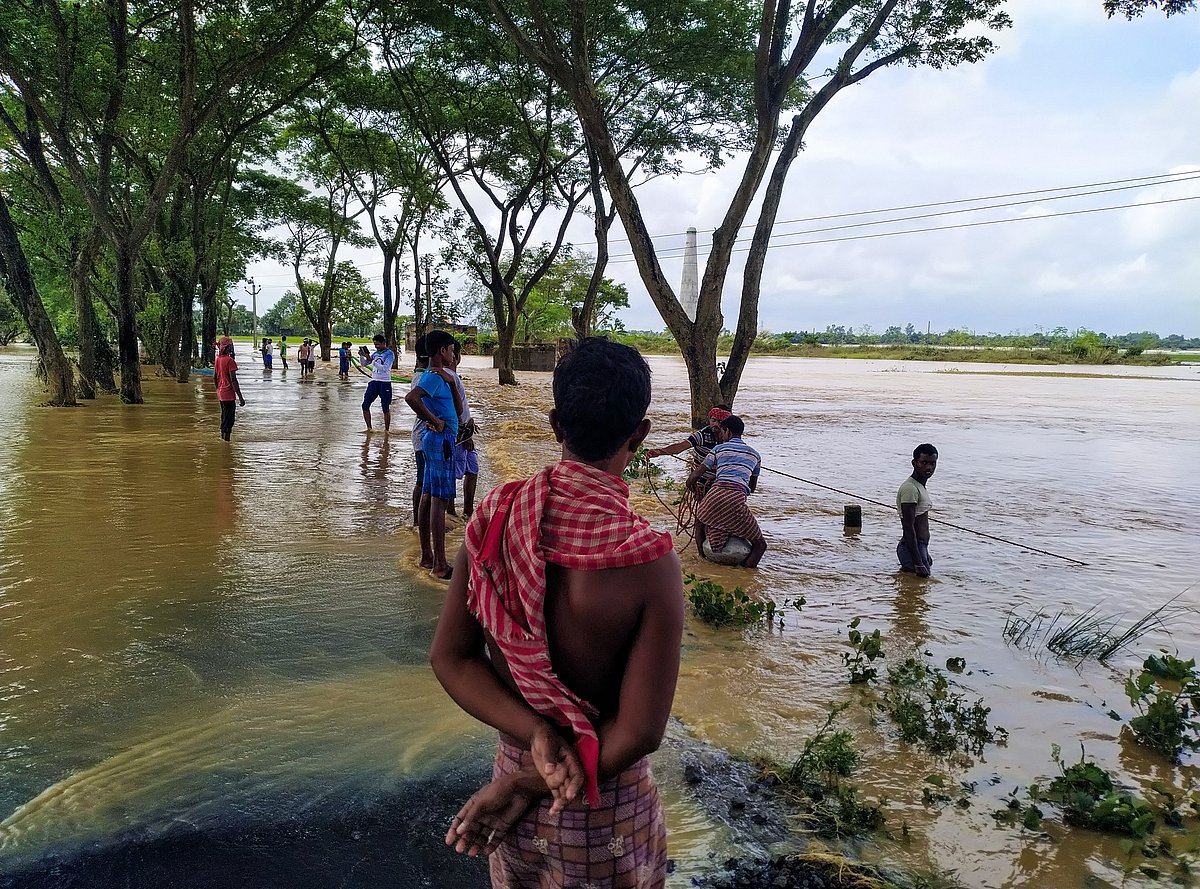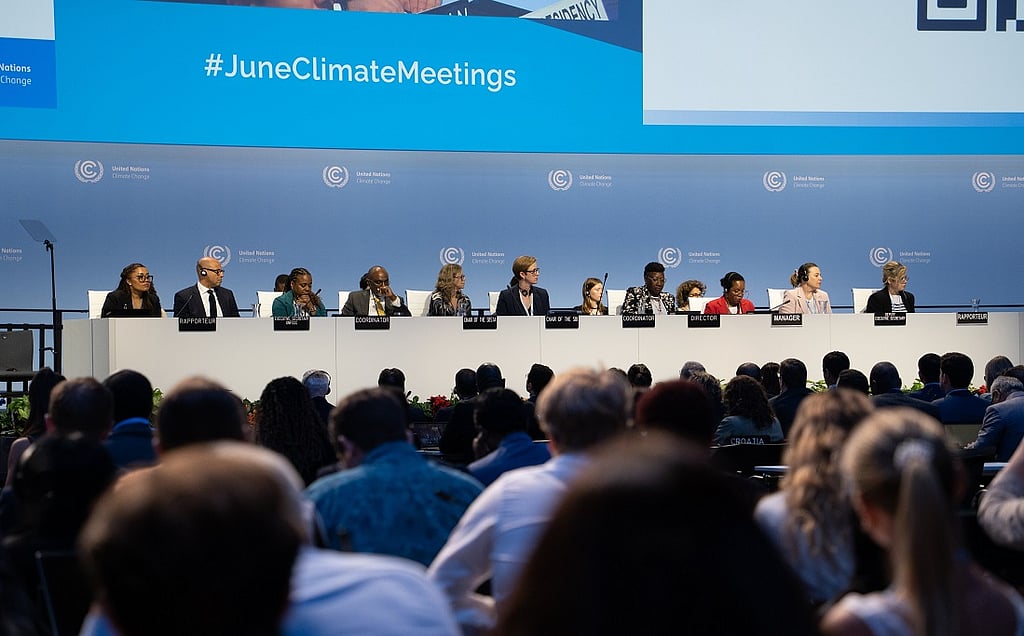Work Overview
CSE has been well known for influencing the design of international climate policy since well before such policy was enshrined in formal institutions - whether it is the landmark paper released in 1991 by Sunita Narain and Anil Agarwal, calling for a decolonisation of carbon budget accounting, or CSE’s commentary on every UN climate meeting since 1992. CSE has led the discourse in climate policy for over three decades advocating for equity, the principle of Common but Differentiated Responsibilities, and investing in resilient economies for the poor.
The Climate Change Programme is committed to championing the study of the most pressing climate issues relevant for the Global South. CSE’s publications on climate-critical topics, its presence at UNFCCC proceedings such as COP summits and Subsidiary Body meetings, public outreach and advocacy, media engagement, and training programmes are designed to create multipliers in society for climate action.
MORE +Updates
Climate Change
Blogs
 |
 |
Climate Change
Climate Change Update
| Climate Weekly Bulletin | ||
 |
||




 EU unveils plans to compensate domestic exporters with CBAM revenues — here’s what it means
EU unveils plans to compensate domestic exporters with CBAM revenues — here’s what it means Bonn Climate Conference 2025: Capacity building, Just Transition and NCQG in talks at Sharm el-Sheikh Dialogue
Bonn Climate Conference 2025: Capacity building, Just Transition and NCQG in talks at Sharm el-Sheikh Dialogue What is the EU Deforestation Regulation — and who is impacted by the policy?
What is the EU Deforestation Regulation — and who is impacted by the policy? BRICS rallies Global South cooperation as it sees western influence wane
BRICS rallies Global South cooperation as it sees western influence wane Norway announces new NDC amid expanding fossil fuel production: Here’s what it says
Norway announces new NDC amid expanding fossil fuel production: Here’s what it says FFD4 Seville: Key outcomes show some hope, but wider systems remain paralysed
FFD4 Seville: Key outcomes show some hope, but wider systems remain paralysed FfD4 Seville: Tax on private jets proposed for premium flyers at UN’s development finance conference
FfD4 Seville: Tax on private jets proposed for premium flyers at UN’s development finance conference FFd4 Seville: Leaders open conference with calls for debt relief, representation and support for multilateralism
FFd4 Seville: Leaders open conference with calls for debt relief, representation and support for multilateralism Countries gather in Seville for FfD4 Conference. It is a pivotal moment for global development finance
Countries gather in Seville for FfD4 Conference. It is a pivotal moment for global development finance Bonn Climate Conference 2025: Diverging views stall UAE Dialogue on implementing Global Stocktake outcomes
Bonn Climate Conference 2025: Diverging views stall UAE Dialogue on implementing Global Stocktake outcomes Bonn Climate Conference 2025: Inside the Baku to Belem Roadmap consultations on climate finance
Bonn Climate Conference 2025: Inside the Baku to Belem Roadmap consultations on climate finance Bonn Climate Conference 2025: Just Transition Work Programme sees divide between justice and transition
Bonn Climate Conference 2025: Just Transition Work Programme sees divide between justice and transition At Bonn Climate Talks, unilateral measures emerge as key flashpoint
At Bonn Climate Talks, unilateral measures emerge as key flashpoint Bonn Climate Conference 2025: On Day 1, developing countries fight EU and allies on finance obligation
Bonn Climate Conference 2025: On Day 1, developing countries fight EU and allies on finance obligation What is in India’s new climate finance taxonomy — and why does it matter for climate action?
What is in India’s new climate finance taxonomy — and why does it matter for climate action?











